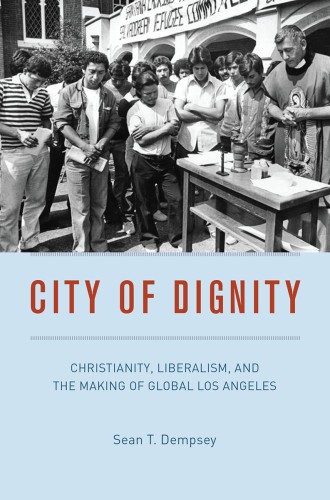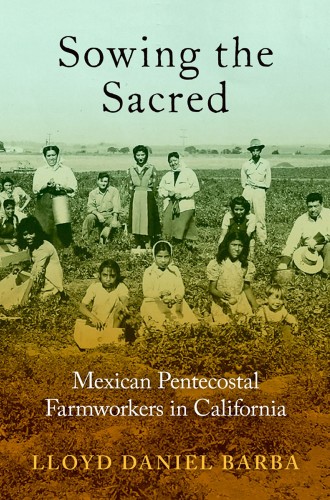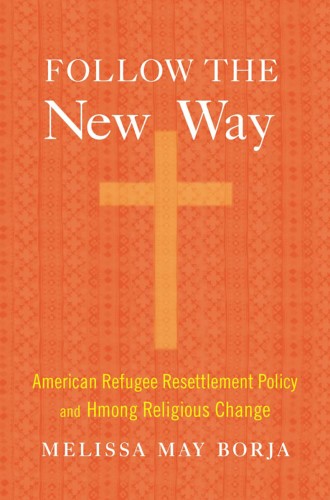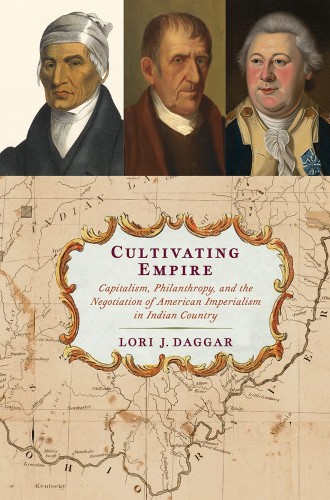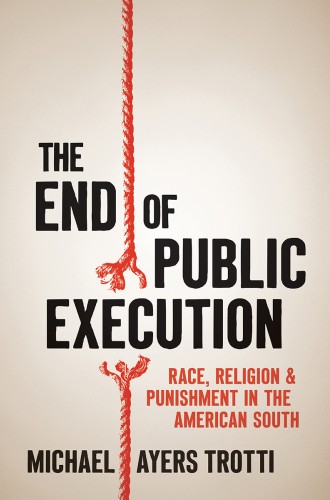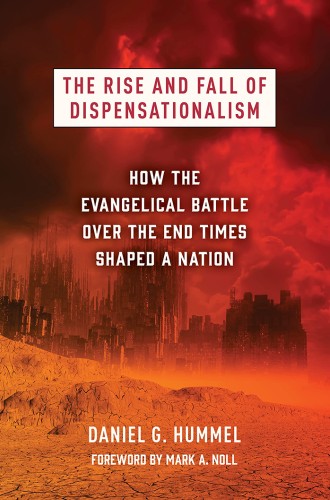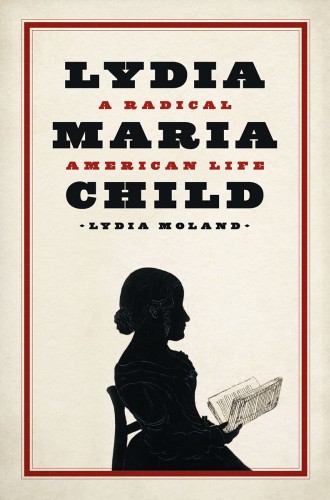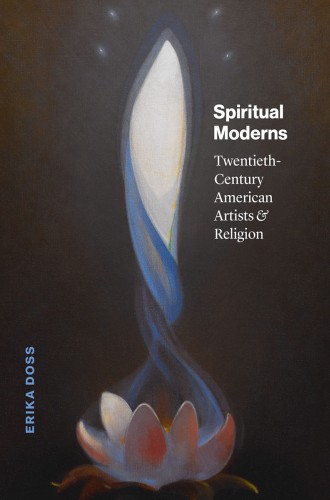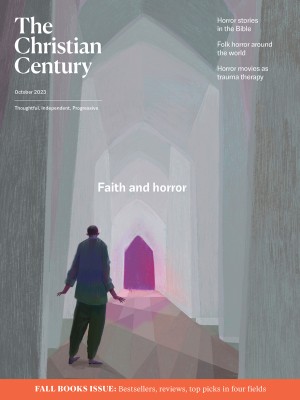City of Dignity: Christianity, Liberalism, and the Making of Global Los Angeles
By Sean T. Dempsey
University of Chicago Press
This valuable addition to the literature on American religious liberalism tells how Catholics and Protestants in Los Angeles drew upon the Social Gospel tradition, the Black power movement, and liberation theology to create a new politics founded on the principle of human dignity. Resisting a broader rightward trend in American politics, these activists fought for economic justice and civil rights while denouncing xenophobia and racism. Sean Dempsey celebrates their accomplishments without ignoring their shortcomings. As he notes, their decision to focus on local politics limited their ability to push for national, structural reforms. Dempsey provides a richly detailed case study of what liberal religion looks like in practice.
Sowing the Sacred: Mexican Pentecostal Farmworkers in California
By Lloyd Daniel Barba
Oxford University Press
Sowing the Sacred is more than a history of Mexican Pentecostal farmworkers in California. It is an excavation, unearthing a religious tradition that’s been buried beneath social prejudice and scholarly neglect. Relying on photographs and oral histories to get around the paucity of written sources, Lloyd Barba shows how Pentecostalism gave Mexican farmworkers a means of overcoming their hellish working conditions. Mexican Pentecostals baptized converts in the same canals that watered the fields where they worked; they erected tents for open-air services that transformed those fields into sacred spaces; they turned the dirt in which they dug into adobe bricks to build their temples. Particularly compelling is Barba’s discussion of women in these churches. Excluded from formal leadership, their fundraising built the churches and their handcrafting beautified them. Their work allowed something powerful and beautiful to grow from California’s landscape.
Read our latest issue or browse back issues.
Follow the New Way: American Refugee Resettlement Policy and Hmong Religious Change
By Melissa May Borja
Harvard University Press
Public policy and religion are inseparable in the United States, as Melissa Borja demonstrates in this superb study of Hmong resettlement. Beginning in the 1970s, the federal government delegated much of the responsibility for resettling Hmong refugees—uprooted in no small part because of the American intervention in Vietnam—to nongovernmental organizations, including many religious NGOs. Borja shows how Americans sought to make sense of Hmong traditions (which they did not always understand) as religious, in the process redefining the nature of religious pluralism. Drawing on oral histories, Borja shows how many Hmong migrants married their own traditions to American Christianity. This “new way” helped them endure the migration to the United States, which was as much a spiritual journey as a spatial one. Borja’s book is a beautiful study of how people work out the meaning of faith in their homes as much as in their religious communities.
Cultivating Empire: Capitalism, Philanthropy, and the Negotiation of American Imperialism in Indian Country
By Lori J. Daggar
University of Pennsylvania Press
Another subtitle for this book might be “Behind the Veil of Benevolence.” Lori Daggar shows how American missionaries, especially Quakers, acted as agents of the American government in its quest to “civilize” Native American tribes in the Ohio Country. This process, which typically began with lessons in farming and blacksmithing, almost always ended with Whites driving the tribes off their land. But this is not just a story of conquest; on multiple occasions, Native Americans exploited American pretensions to “benevolence” to defend their own interests. Daggar brilliantly situates Christian missionary work within a broader story of imperial ambition and capitalist expansion, demonstrating how early Americans came to believe that benevolence and profit went hand in hand.
The End of Public Execution: Race, Religion, and Punishment in the American South
By Michael Ayers Trotti
University of North Carolina Press
Why did southern states shift from public executions to private ones? Michael Trotti suggests the answer lies in southern religion. When Black men were publicly hanged, Black southerners didn’t play along with the White authorities—neither the accused nor the assembled crowd. The crowd sang hymns, the accused sometimes preached a sermon, and the event felt more like a revival than a punishment. Southern Whites who wanted to keep Black people under control were disturbed by what they called the disorderly nature of these events, which, as Trotti writes, “undercut the official narrative of [executions] being chastening or cautionary, teaching the underclass a lesson.” Eventually, every southern state did away with public hangings in favor of electrocutions conducted in front of White authorities. Trotti’s book is a fascinating study of the subversive power of communal faith.
The Rise and Fall of Dispensationalism: How the Evangelical Battle over the End Times Shaped a Nation
By Daniel G. Hummel
Eerdmans
Dispensationalism is a Christian theology which divides the history of the world into divinely ordained ages and which often looks forward to the end of all ages and the second coming of Jesus. Daniel Hummel tackles this enormous subject with consummate skill, producing the best study of dispensationalism in decades. Those who only know this theology from the pop apocalypses of Hal Lindsey’s The Late Great Planet Earth or Tim LaHaye’s Left Behind will find here an invaluable guide to dispensationalism—which includes not only the lurid visions of Lindsey and LaHaye but also the work of scholars like Lewis Sperry Chafer and Charles Ryrie. Hummel argues, convincingly, that dispensationalism has formed the backbone of White conservative Protestantism in the United States. He makes the equally convincing argument that this backbone has broken, leaving the culture of conservative Protestantism in chaos.
Lydia Maria Child: A Radical American Life
By Lydia Moland
University of Chicago Press
The 19th-century author Lydia Maria Child is not exactly a household name today, but Lydia Moland’s biography demonstrates that she ought to be. The product of a Calvinist upbringing in New England, Child found fame early in life by writing novels, children’s books, and advice manuals. Her The Frugal Housewife is among America’s first self-help books. Then, at the height of her success, she risked everything by becoming an ardent abolitionist. Her passionate An Appeal in Favor of that Class of Americans Called Africans (1833) was one of the first book-length denunciations of slavery in the United States. Condemned by many but celebrated by abolitionists, this book put Child on the front line of the campaign against slavery. Moland’s highly readable biography depicts Child as a woman who approached abolitionism with a religious sense of duty. She may have abandoned her churchly faith, but she never gave up her pursuit of transcendent truth. This biography ought to restore Child’s name to the pantheon of American reformers.
Spiritual Moderns: Twentieth-Century American Artists and Religion
By Erika Doss
University of Chicago Press
Spiritual Moderns tells a story of erasure: how religion was blotted out from the history of modern art. Erika Doss thoughtfully demonstrates that many modern artists, including Wassily Kandinsky, Marcel Duchamp, and Alfred Stieglitz, conceived of their work as a religious quest for transcendence. She also explains how American art critics read religion out of the story, insisting that the muscular, vigorous nature of American modernism had no need for “mysticism.” Doss reclaims American modernism’s religious element by focusing on four figures: surrealist collage maker Joseph Cornell, abstract expressionist painter Mark Tobey, visionary painter Agnes Pelton, and mixed-media mastermind Andy Warhol. Exploring surprising linkages, such as how Tobey’s distinctive “white writing” paintings drew on Bahá’í calligraphy and how Cornell’s celebration of the quotidian reflected his devotion to Christian Science, Spiritual Moderns casts new light on the history of American art.


